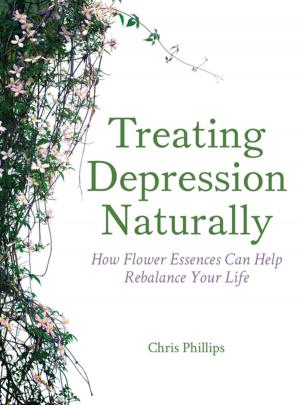The symptom is not the disease
Nonfiction, Health & Well Being, Health, Alternative & Holistic Health, Homeopathy| Author: | Rod Ohlsson | ISBN: | 9781465958761 |
| Publisher: | Rod Ohlsson | Publication: | September 6, 2011 |
| Imprint: | Smashwords Edition | Language: | English |
| Author: | Rod Ohlsson |
| ISBN: | 9781465958761 |
| Publisher: | Rod Ohlsson |
| Publication: | September 6, 2011 |
| Imprint: | Smashwords Edition |
| Language: | English |
There are two distinct philosophies of medicine throughout the world. Simply put, one philosophy considers the symptom to be the disease, and the other considers the symptoms important but not the disease.
Any philosophy that considers the symptom to be the disease will inevitably give rise to a system or systems of medicine that are aimed at the effective removal of symptoms, and this approach is the dominant system throughout the world today.
We are all very familiar with the system in one form or another, that holds the symptom to be the disease, it is generally referred to as medical science, or conventional medicine. We experience it as practiced by general medical practitioners (doctors), specialists and surgeons, and is delivered through surgeries, health centres and hospitals.
Most of these practitioners would argue that they are not delivering a service based on such a simplistic principle, and would point at the great advances in understanding the nature of disease agents and the sophisticated medicines now at their disposal to treat them. However a brief glance at the categories of medicines and surgical procedures will reveal that they are generally aimed at removal or suppression of symptoms. We are all familiar with Pain killers, anti inflammatory drugs, broncho- dilators, diuretics, anti biotics etc; and it is undoubtedly true that in most cases these drugs will perform their specific task effectively.
Ever since the intellect of man has developed sufficient capacity, it has sought to alleviate pain and suffering, and in most societies both primitive (so called) and the technologically advanced, have discovered, historically, plants and minerals, to use as medicines, and in modern developed societies, these primitive medicines have been superseded in many cases by synthetically produced medicines, designed to do the same job more effectively.
It is perfectly understandable that a suffering individual would want to be free of the symptoms as quickly as possible, and barring any unpleasant ‘reaction or after effect’ to the treatment, will consider the job effectively complete, and think no more about it.
As medical practice has evolved with detailed observation of cases over time and effective record keeping has shown that the taking of medicines to treat symptomatology rather than address the causes of those symptoms, can lead to more serious conditions with new symptomatology, requiring the prescribing of yet more powerful medication to subdue the new symptom picture, or surgical intervention in some cases.
Throughout recent history there have been voices pointing out the possible short comings of this rather superficial approach to treating disease and the negative effects of the powerful medicines and drugs employed.
Today we have an explosion (hundreds, maybe thousands) of so called natural or alternative systems of medicine, however with closer examination of the methods and medicines used we find that the materials may be an alternative to regular pharmaceutical medicines but the methodology and philosophy are based on exactly the same principle i.e.: the symptom is the disease. With the same drawbacks if the medicine is effective in merely removing or suppressing the symptom.
There are two distinct philosophies of medicine throughout the world. Simply put, one philosophy considers the symptom to be the disease, and the other considers the symptoms important but not the disease.
Any philosophy that considers the symptom to be the disease will inevitably give rise to a system or systems of medicine that are aimed at the effective removal of symptoms, and this approach is the dominant system throughout the world today.
We are all very familiar with the system in one form or another, that holds the symptom to be the disease, it is generally referred to as medical science, or conventional medicine. We experience it as practiced by general medical practitioners (doctors), specialists and surgeons, and is delivered through surgeries, health centres and hospitals.
Most of these practitioners would argue that they are not delivering a service based on such a simplistic principle, and would point at the great advances in understanding the nature of disease agents and the sophisticated medicines now at their disposal to treat them. However a brief glance at the categories of medicines and surgical procedures will reveal that they are generally aimed at removal or suppression of symptoms. We are all familiar with Pain killers, anti inflammatory drugs, broncho- dilators, diuretics, anti biotics etc; and it is undoubtedly true that in most cases these drugs will perform their specific task effectively.
Ever since the intellect of man has developed sufficient capacity, it has sought to alleviate pain and suffering, and in most societies both primitive (so called) and the technologically advanced, have discovered, historically, plants and minerals, to use as medicines, and in modern developed societies, these primitive medicines have been superseded in many cases by synthetically produced medicines, designed to do the same job more effectively.
It is perfectly understandable that a suffering individual would want to be free of the symptoms as quickly as possible, and barring any unpleasant ‘reaction or after effect’ to the treatment, will consider the job effectively complete, and think no more about it.
As medical practice has evolved with detailed observation of cases over time and effective record keeping has shown that the taking of medicines to treat symptomatology rather than address the causes of those symptoms, can lead to more serious conditions with new symptomatology, requiring the prescribing of yet more powerful medication to subdue the new symptom picture, or surgical intervention in some cases.
Throughout recent history there have been voices pointing out the possible short comings of this rather superficial approach to treating disease and the negative effects of the powerful medicines and drugs employed.
Today we have an explosion (hundreds, maybe thousands) of so called natural or alternative systems of medicine, however with closer examination of the methods and medicines used we find that the materials may be an alternative to regular pharmaceutical medicines but the methodology and philosophy are based on exactly the same principle i.e.: the symptom is the disease. With the same drawbacks if the medicine is effective in merely removing or suppressing the symptom.















